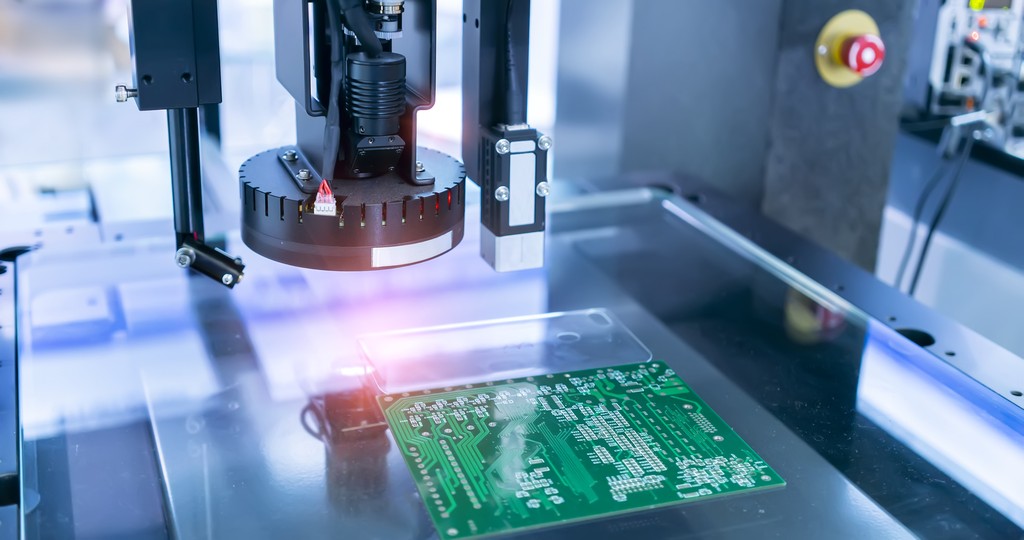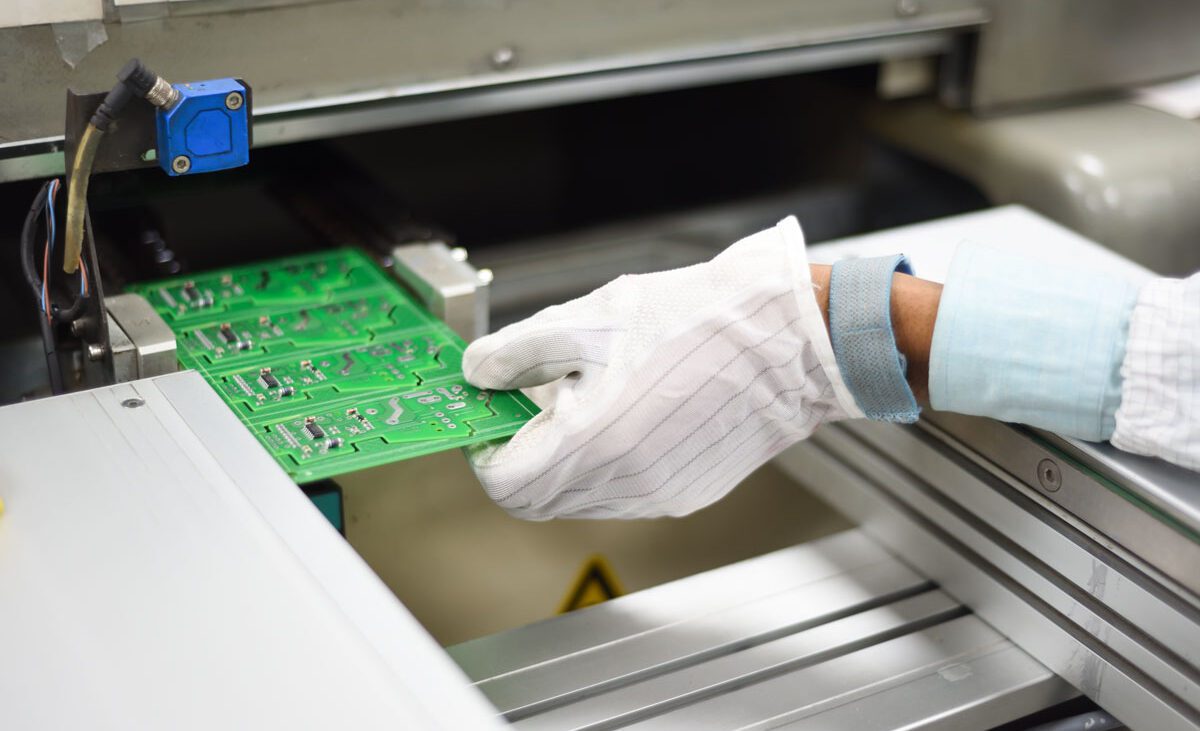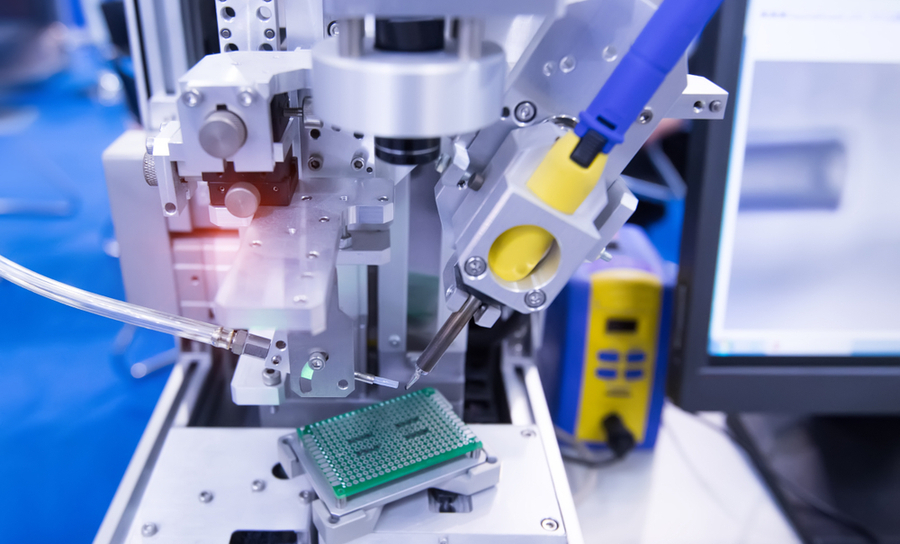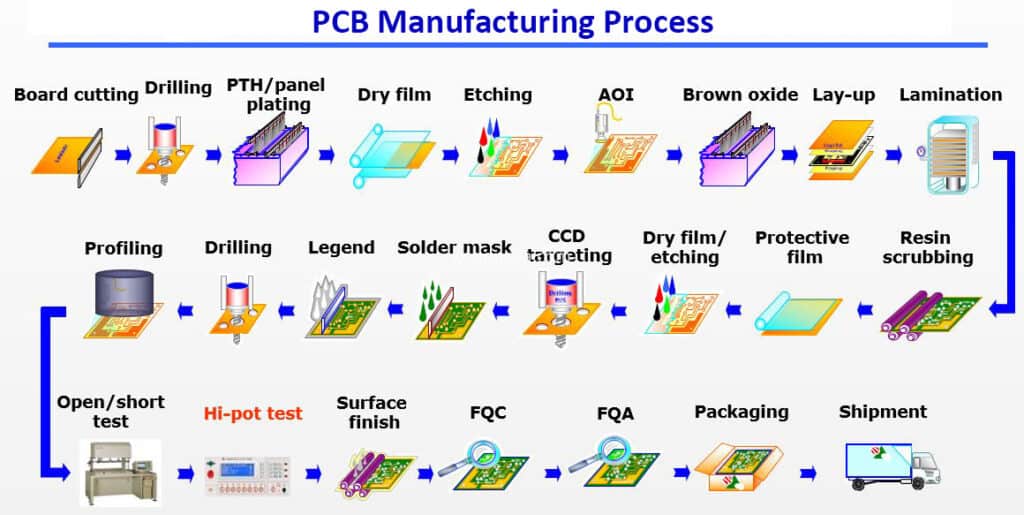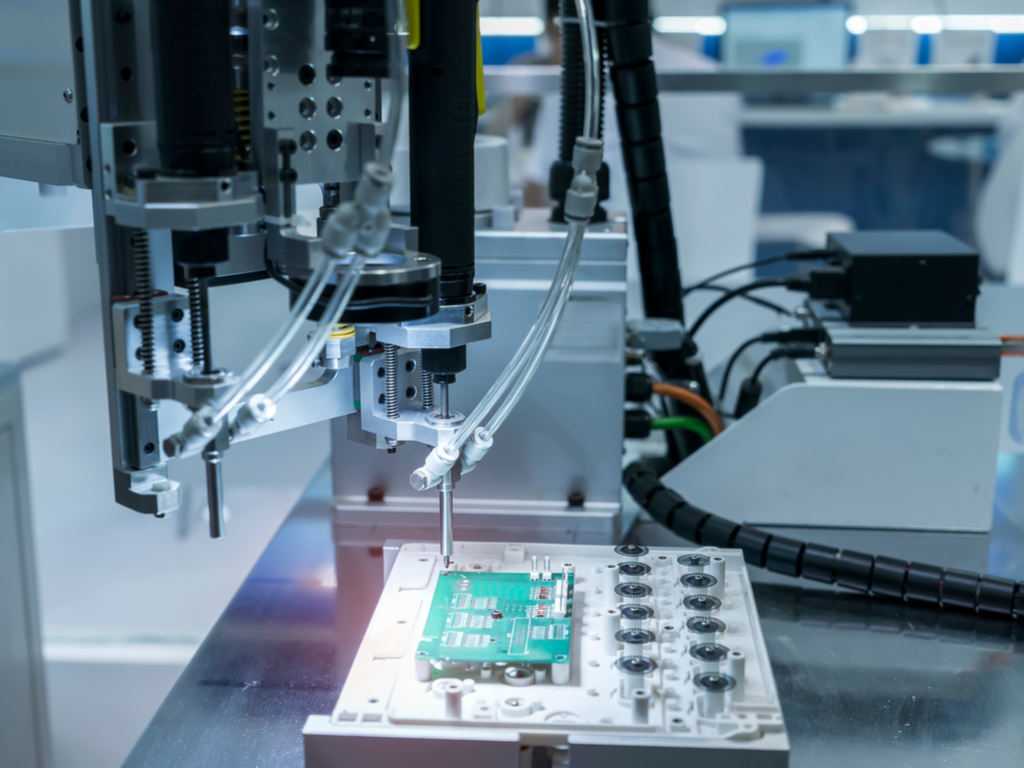Breaking Down the Barriers to Entry in PCB Manufacturing
The PCB manufacturing industry has long been characterized by high barriers to entry, making it challenging for new companies to break into the market. One of the primary obstacles is the high cost of equipment, which can be prohibitively expensive for startups. Additionally, the production process itself is complex, requiring specialized knowledge and expertise to navigate. Furthermore, the industry is subject to stringent quality control requirements, which can be difficult for new entrants to meet.
Despite these challenges, a new wave of PCB manufacturing equipment startups is emerging, driven by innovative solutions and a willingness to disrupt the status quo. These startups are leveraging advances in technology to develop more affordable and accessible equipment, making it possible for smaller companies to enter the market. For example, some startups are developing modular, scalable equipment that can be easily integrated into existing production lines, reducing the need for costly and time-consuming upgrades.
Another key factor driving the growth of PCB manufacturing equipment startups is the increasing demand for customized and specialized PCBs. As the electronics industry continues to evolve, companies are seeking more sophisticated and complex PCBs that can meet the demands of emerging technologies such as IoT, AI, and 5G. Startups are well-positioned to capitalize on this trend, offering innovative solutions that can meet the unique needs of these emerging markets.
PCB manufacturing equipment startups are also benefiting from the trend towards miniaturization and the increasing demand for smaller, more compact PCBs. As devices become smaller and more complex, the need for specialized equipment that can handle these tiny components is growing. Startups are developing innovative solutions that can meet this demand, such as high-precision pick-and-place machines and advanced inspection systems.
Overall, the emergence of PCB manufacturing equipment startups is transforming the industry, making it more accessible and innovative. By breaking down the barriers to entry and offering new and innovative solutions, these startups are poised to play a major role in shaping the future of PCB manufacturing.
How to Choose the Right PCB Manufacturing Equipment for Your Startup
When it comes to selecting the right PCB manufacturing equipment for your startup, there are several factors to consider. Production volume, product complexity, and budget constraints are all critical considerations that can impact the success of your operation. For startups, it’s essential to choose equipment that can meet the demands of your production needs while also being mindful of costs.
One of the most critical pieces of equipment in PCB manufacturing is the pick-and-place machine. This machine is responsible for placing components onto the PCB, and its accuracy and speed can significantly impact production efficiency. When selecting a pick-and-place machine, consider the type of components you will be working with, as well as the production volume you anticipate. Some startups may require a high-speed machine that can handle large volumes, while others may need a more precise machine that can handle smaller, more delicate components.
Another essential piece of equipment is the reflow oven. This oven is used to solder components onto the PCB, and its temperature control and uniformity are critical to ensuring high-quality production. When selecting a reflow oven, consider the type of solder you will be using, as well as the size and complexity of your PCBs. Some startups may require a more advanced oven with features such as nitrogen atmosphere or advanced temperature control.
In addition to these critical pieces of equipment, startups should also consider the importance of inspection and testing equipment. This equipment can help ensure that PCBs are produced to high standards, and can help identify any defects or issues early in the production process. Some startups may require advanced inspection equipment such as automated optical inspection (AOI) or X-ray inspection.
When selecting PCB manufacturing equipment, startups should also consider the importance of scalability and flexibility. As production volumes increase, equipment should be able to adapt to meet the demands of the operation. Some startups may require equipment that can be easily integrated into existing production lines, or that can be easily upgraded or modified as production needs change.
Finally, startups should consider the importance of working with a reputable equipment supplier. A good supplier can provide valuable guidance and support throughout the equipment selection process, and can help ensure that equipment is properly installed and maintained. Some startups may also benefit from working with a supplier that offers training and support services, to help ensure that equipment is used to its full potential.
By carefully considering these factors, PCB manufacturing equipment startups can choose the right equipment for their operation, and set themselves up for success in the competitive world of PCB manufacturing.
The Role of Automation in Modern PCB Manufacturing
Automation has become a crucial component of modern PCB manufacturing, enabling companies to increase productivity, improve quality, and reduce costs. By leveraging advanced technologies such as robotics, machine learning, and computer vision, PCB manufacturing equipment startups are revolutionizing the industry and setting new standards for efficiency and innovation.
One of the most significant benefits of automation in PCB manufacturing is its ability to improve productivity. Automated systems can perform tasks such as component placement, soldering, and inspection with greater speed and accuracy than manual processes, allowing companies to produce more PCBs in less time. Additionally, automation can help reduce labor costs and minimize the risk of human error, which can lead to costly rework and scrap.
Another key advantage of automation in PCB manufacturing is its ability to improve quality. Automated systems can inspect PCBs for defects and irregularities with greater precision than manual inspection methods, allowing companies to detect and correct issues earlier in the production process. This can help reduce the risk of defective products reaching customers and improve overall product quality.
PCB manufacturing equipment startups are also leveraging automation to reduce costs and improve efficiency. For example, some companies are using automated storage and retrieval systems to manage inventory and reduce material handling costs. Others are using automated testing and inspection systems to reduce the need for manual testing and inspection.
Examples of startups that have successfully implemented automated solutions in PCB manufacturing include companies like Robotronic, which offers a range of automated PCB assembly and inspection systems. Another example is CyberOptics, which provides automated inspection and testing systems for PCB manufacturing.
As the PCB manufacturing industry continues to evolve, it’s likely that automation will play an increasingly important role in shaping the future of the industry. By leveraging advanced technologies and innovative solutions, PCB manufacturing equipment startups can help drive growth, improve efficiency, and reduce costs, ultimately benefiting customers and the industry as a whole.
In addition to the benefits mentioned above, automation can also help PCB manufacturing equipment startups to improve their environmental sustainability. By reducing energy consumption, minimizing waste, and optimizing material usage, automated systems can help companies reduce their environmental footprint and improve their sustainability.
Overall, the role of automation in modern PCB manufacturing is clear: it’s a key driver of innovation, efficiency, and quality. As the industry continues to evolve, it’s likely that automation will play an increasingly important role in shaping the future of PCB manufacturing.
Emerging Trends in PCB Manufacturing Equipment: What to Expect
The PCB manufacturing equipment industry is undergoing a significant transformation, driven by the adoption of Industry 4.0 technologies, such as artificial intelligence, IoT, and data analytics. These emerging trends are shaping the future of PCB production, enabling manufacturers to improve efficiency, reduce costs, and enhance product quality.
One of the most significant trends in PCB manufacturing equipment is the increasing use of artificial intelligence (AI) and machine learning (ML) algorithms. AI-powered systems can analyze vast amounts of data from various sources, including sensors, machines, and production lines, to optimize production processes, predict maintenance needs, and detect potential quality issues. For example, AI-powered inspection systems can detect defects and irregularities in PCBs with greater accuracy and speed than traditional manual inspection methods.
Another emerging trend in PCB manufacturing equipment is the adoption of IoT technologies. IoT-enabled devices and sensors can collect and transmit data in real-time, enabling manufacturers to monitor and control production processes remotely. This can help improve efficiency, reduce downtime, and enhance product quality. For example, IoT-enabled temperature control systems can monitor and adjust temperature levels in real-time, ensuring that PCBs are produced within optimal temperature ranges.
Data analytics is also playing a critical role in the PCB manufacturing equipment industry. Advanced data analytics tools can analyze vast amounts of data from various sources, including production lines, machines, and sensors, to provide insights into production processes, quality control, and maintenance needs. For example, data analytics can help manufacturers identify trends and patterns in production data, enabling them to optimize production processes, reduce waste, and improve product quality.
PCB manufacturing equipment startups are also leveraging these emerging trends to develop innovative solutions. For example, startups like Aegis Software are developing AI-powered manufacturing execution systems (MES) that can optimize production processes, predict maintenance needs, and detect potential quality issues. Another example is the startup, Cogiscan, which is developing IoT-enabled tracking and monitoring systems for PCB manufacturing.
As the PCB manufacturing equipment industry continues to evolve, it’s likely that these emerging trends will play an increasingly important role in shaping the future of PCB production. By leveraging AI, IoT, and data analytics, manufacturers can improve efficiency, reduce costs, and enhance product quality, ultimately benefiting customers and the industry as a whole.
In addition to these emerging trends, the PCB manufacturing equipment industry is also witnessing a growing focus on sustainability and environmental responsibility. Manufacturers are increasingly adopting eco-friendly production processes, reducing waste, and minimizing environmental impact. This trend is expected to continue, with manufacturers prioritizing sustainability and environmental responsibility in their production processes.
Overall, the emerging trends in PCB manufacturing equipment are transforming the industry, enabling manufacturers to improve efficiency, reduce costs, and enhance product quality. By leveraging AI, IoT, and data analytics, manufacturers can stay ahead of the curve and remain competitive in a rapidly evolving industry.
Success Stories: PCB Manufacturing Equipment Startups Making Waves
The PCB manufacturing equipment industry has witnessed a surge in innovative startups that are making a significant impact on the market. These startups are leveraging cutting-edge technologies, such as artificial intelligence, IoT, and data analytics, to develop innovative solutions that are transforming the industry. In this section, we will highlight a few notable startups that have made significant contributions to the PCB manufacturing equipment landscape.
Tempo Automation is a great example of a startup that has made a significant impact on the PCB manufacturing equipment industry. Tempo Automation is a software company that provides a cloud-based platform for PCB manufacturing. The platform uses artificial intelligence and machine learning algorithms to optimize the PCB manufacturing process, reducing production time and costs. Tempo Automation has gained significant traction in the industry, with many leading manufacturers adopting its platform.
Another notable startup is Fictiv, a company that provides a digital platform for PCB manufacturing. Fictiv’s platform uses data analytics and machine learning algorithms to optimize the PCB manufacturing process, reducing production time and costs. Fictiv has gained significant traction in the industry, with many leading manufacturers adopting its platform.
Other notable startups in the PCB manufacturing equipment industry include Aegis Software, Cogiscan, and KIC. Aegis Software provides a manufacturing execution system (MES) that uses artificial intelligence and machine learning algorithms to optimize the PCB manufacturing process. Cogiscan provides a tracking and monitoring system for PCB manufacturing, using IoT and data analytics to optimize production. KIC provides a thermal process management system for PCB manufacturing, using data analytics and machine learning algorithms to optimize production.
These startups are just a few examples of the many innovative companies that are making a significant impact on the PCB manufacturing equipment industry. By leveraging cutting-edge technologies, such as artificial intelligence, IoT, and data analytics, these startups are transforming the industry and providing innovative solutions that are improving efficiency, reducing costs, and enhancing product quality.
The success of these startups is a testament to the innovative spirit of the PCB manufacturing equipment industry. By embracing new technologies and business models, these startups are disrupting the traditional ways of doing business and creating new opportunities for growth and innovation.
As the PCB manufacturing equipment industry continues to evolve, it’s likely that we will see even more innovative startups emerge. By leveraging cutting-edge technologies and innovative business models, these startups will continue to transform the industry and provide innovative solutions that improve efficiency, reduce costs, and enhance product quality.
Overcoming the Challenges of Scaling PCB Manufacturing Operations
As PCB manufacturing equipment startups grow and expand their operations, they often face new challenges that can impact their ability to scale efficiently. Managing increased production volumes, maintaining quality control, and adapting to changing market demands are just a few of the challenges that startups may encounter. In this section, we will provide advice on how startups can overcome these challenges and successfully scale their PCB manufacturing operations.
One of the key challenges that startups face when scaling their PCB manufacturing operations is managing increased production volumes. As production volumes increase, startups must ensure that they have the necessary equipment, personnel, and processes in place to meet demand. This can be a significant challenge, particularly for startups that are used to producing smaller volumes. To overcome this challenge, startups can consider investing in new equipment, such as high-speed pick-and-place machines or advanced inspection systems, that can help them increase production efficiency and meet growing demand.
Another challenge that startups face when scaling their PCB manufacturing operations is maintaining quality control. As production volumes increase, startups must ensure that they are maintaining the same level of quality control that they had when producing smaller volumes. This can be a significant challenge, particularly for startups that are used to producing high-quality PCBs in smaller volumes. To overcome this challenge, startups can consider implementing new quality control processes, such as automated inspection systems or advanced testing protocols, that can help them maintain high-quality PCBs even at higher production volumes.
Adapting to changing market demands is another challenge that startups face when scaling their PCB manufacturing operations. As market demands change, startups must be able to adapt quickly to meet new requirements. This can be a significant challenge, particularly for startups that are used to producing PCBs for specific markets or applications. To overcome this challenge, startups can consider investing in new equipment or processes that can help them adapt to changing market demands, such as flexible manufacturing systems or advanced material handling systems.
In addition to these challenges, startups must also consider the importance of talent acquisition and retention when scaling their PCB manufacturing operations. As production volumes increase, startups must ensure that they have the necessary personnel in place to meet demand. This can be a significant challenge, particularly for startups that are used to operating with smaller teams. To overcome this challenge, startups can consider investing in training and development programs that can help them attract and retain top talent in the industry.
By understanding these challenges and taking steps to overcome them, PCB manufacturing equipment startups can successfully scale their operations and meet growing demand for their products. Whether it’s investing in new equipment, implementing new quality control processes, or adapting to changing market demands, startups must be able to navigate the challenges of scaling their operations in order to achieve long-term success.
The Importance of Collaboration and Partnerships in PCB Manufacturing
Collaboration and partnerships are essential components of the PCB manufacturing ecosystem. By working together, startups, established manufacturers, and industry organizations can drive innovation and growth, ultimately benefiting the entire industry. In this section, we will discuss the importance of collaboration and partnerships in PCB manufacturing and highlight examples of successful partnerships.
One of the key benefits of collaboration and partnerships in PCB manufacturing is the sharing of knowledge and expertise. By working together, startups and established manufacturers can share best practices, technologies, and resources, ultimately driving innovation and growth. For example, a startup may partner with an established manufacturer to gain access to advanced technologies or manufacturing expertise, while the established manufacturer may benefit from the startup’s innovative approach to PCB manufacturing.
Another benefit of collaboration and partnerships in PCB manufacturing is the ability to address common challenges and opportunities. By working together, industry stakeholders can identify and address common challenges, such as the need for more efficient manufacturing processes or the development of new technologies. For example, industry organizations may partner with startups and established manufacturers to develop new standards or guidelines for PCB manufacturing, ultimately benefiting the entire industry.
In addition to these benefits, collaboration and partnerships can also provide startups with access to new markets and customers. By partnering with established manufacturers or industry organizations, startups can gain access to new markets and customers, ultimately driving growth and revenue. For example, a startup may partner with an established manufacturer to gain access to new markets or customers, while the established manufacturer may benefit from the startup’s innovative approach to PCB manufacturing.
Examples of successful partnerships in PCB manufacturing include the partnership between Tempo Automation and Fictiv. Tempo Automation, a startup that provides a cloud-based platform for PCB manufacturing, partnered with Fictiv, a startup that provides a digital platform for manufacturing, to provide a comprehensive solution for PCB manufacturing. This partnership enabled Tempo Automation to expand its offerings and reach new customers, while Fictiv benefited from Tempo Automation’s expertise in PCB manufacturing.
Another example of a successful partnership in PCB manufacturing is the partnership between the IPC (Institute for Printed Circuits) and the PCB manufacturing industry. The IPC, a trade association that represents the PCB manufacturing industry, partnered with industry stakeholders to develop new standards and guidelines for PCB manufacturing. This partnership enabled the industry to address common challenges and opportunities, ultimately benefiting the entire industry.
In conclusion, collaboration and partnerships are essential components of the PCB manufacturing ecosystem. By working together, startups, established manufacturers, and industry organizations can drive innovation and growth, ultimately benefiting the entire industry. Whether it’s sharing knowledge and expertise, addressing common challenges and opportunities, or providing access to new markets and customers, collaboration and partnerships are critical to the success of PCB manufacturing equipment startups.
Preparing for the Future: Strategies for PCB Manufacturing Equipment Startups
As the PCB manufacturing equipment industry continues to evolve, startups must be prepared to adapt to changing market demands, technological advancements, and shifting customer needs. To establish a strong foundation for long-term success, PCB manufacturing equipment startups must focus on strategic planning, market research, product development, and talent acquisition. In this section, we will provide guidance on how startups can prepare for the future and achieve success in the PCB manufacturing equipment industry.
Market research is a critical component of any successful business strategy. PCB manufacturing equipment startups must conduct thorough market research to understand customer needs, preferences, and pain points. This research can help startups identify opportunities for innovation, develop targeted marketing campaigns, and create products that meet the needs of their target market.
Product development is another key area of focus for PCB manufacturing equipment startups. Startups must invest in research and development to create innovative products that meet the evolving needs of the market. This can include developing new technologies, improving existing products, or creating entirely new product lines. By focusing on product development, startups can differentiate themselves from competitors and establish a strong market presence.
Talent acquisition is also essential for PCB manufacturing equipment startups. Startups must attract and retain top talent in the industry, including engineers, technicians, and sales professionals. This can be achieved by offering competitive salaries, benefits, and opportunities for career advancement. By building a strong team, startups can drive innovation, improve product quality, and enhance customer satisfaction.
In addition to these strategies, PCB manufacturing equipment startups must also focus on building strong relationships with customers, suppliers, and partners. This can include establishing partnerships with industry leaders, attending trade shows and conferences, and engaging in social media marketing. By building a strong network of relationships, startups can stay informed about industry trends, identify new opportunities, and drive business growth.
Finally, PCB manufacturing equipment startups must be prepared to adapt to changing market conditions and technological advancements. This can include investing in new technologies, such as artificial intelligence or IoT, and staying up-to-date with the latest industry trends and developments. By being agile and adaptable, startups can stay ahead of the competition and achieve long-term success in the PCB manufacturing equipment industry.
In conclusion, PCB manufacturing equipment startups must focus on strategic planning, market research, product development, and talent acquisition to establish a strong foundation for long-term success. By building a strong team, establishing partnerships, and staying adaptable, startups can drive innovation, improve product quality, and enhance customer satisfaction. Whether it’s investing in new technologies or building strong relationships with customers and partners, PCB manufacturing equipment startups must be prepared to adapt to changing market demands and achieve success in the industry.

